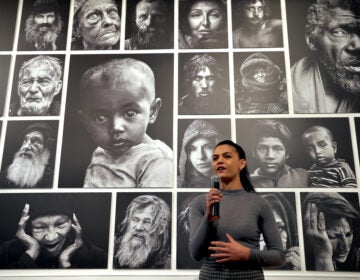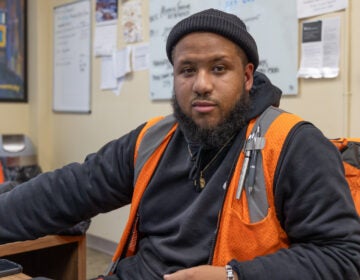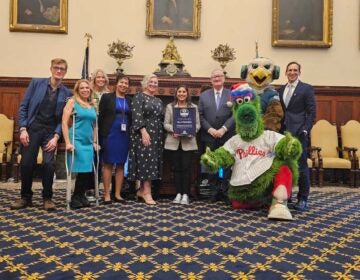Free Muslim-run health clinic opens to all in Northeast Philly
Despite initial pushback and bigoted comments from some local residents, SHAMS Clinic celebrated its grand opening in Northeast Philadelphia on Sunday afternoon.
Listen 2:17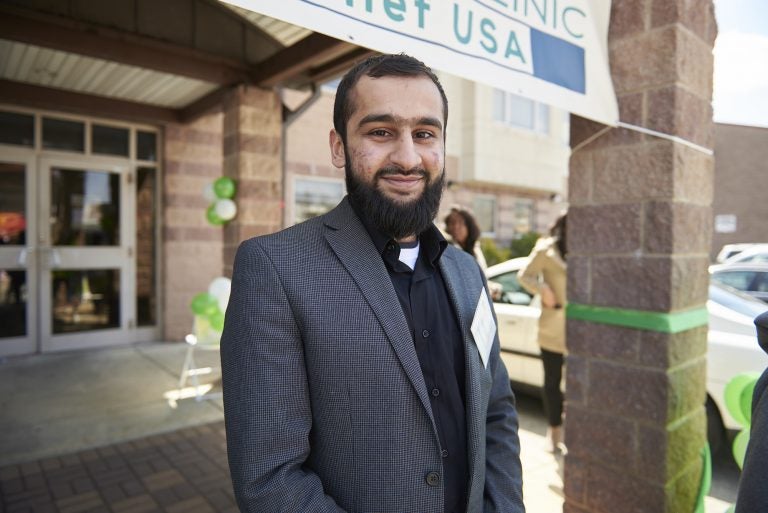
Outreach coordinator and board member Maaz Baqai stands outside SHAMS Clinic on Frankford Avenue during the grand opening event on Sunday, April 8, 2018. (Natalie Piserchio/for WHYY)
Before the ribbon was cut Sunday afternoon, staff and supporters of SHAMS Clinic on Frankford Avenue in Northeast Philadelphia began the grand opening celebration with a prayer from the Koran.
Speaking in part about the diversity of the city’s languages and colors, the prayer seemed to echo the mission of the clinic itself: It is open to everyone who needs it, but members of the all-volunteer staff make no apology about being Muslim, and their connection to an Islamic service organization.
“I’m really hoping today, with the grand opening, people will just see that we’re really not different from all the other organizations,” said medical director, Dr. Ammar Shahid.
“We’ve reached out to the local churches, synagogues, local businesses and let them know that sure we’re under a Muslim name and Muslim leaders, but we are open to everyone,” he added. “We’re not discriminating based on race or culture, even where you’re from. The whole community is helped, not just the Muslims here.”
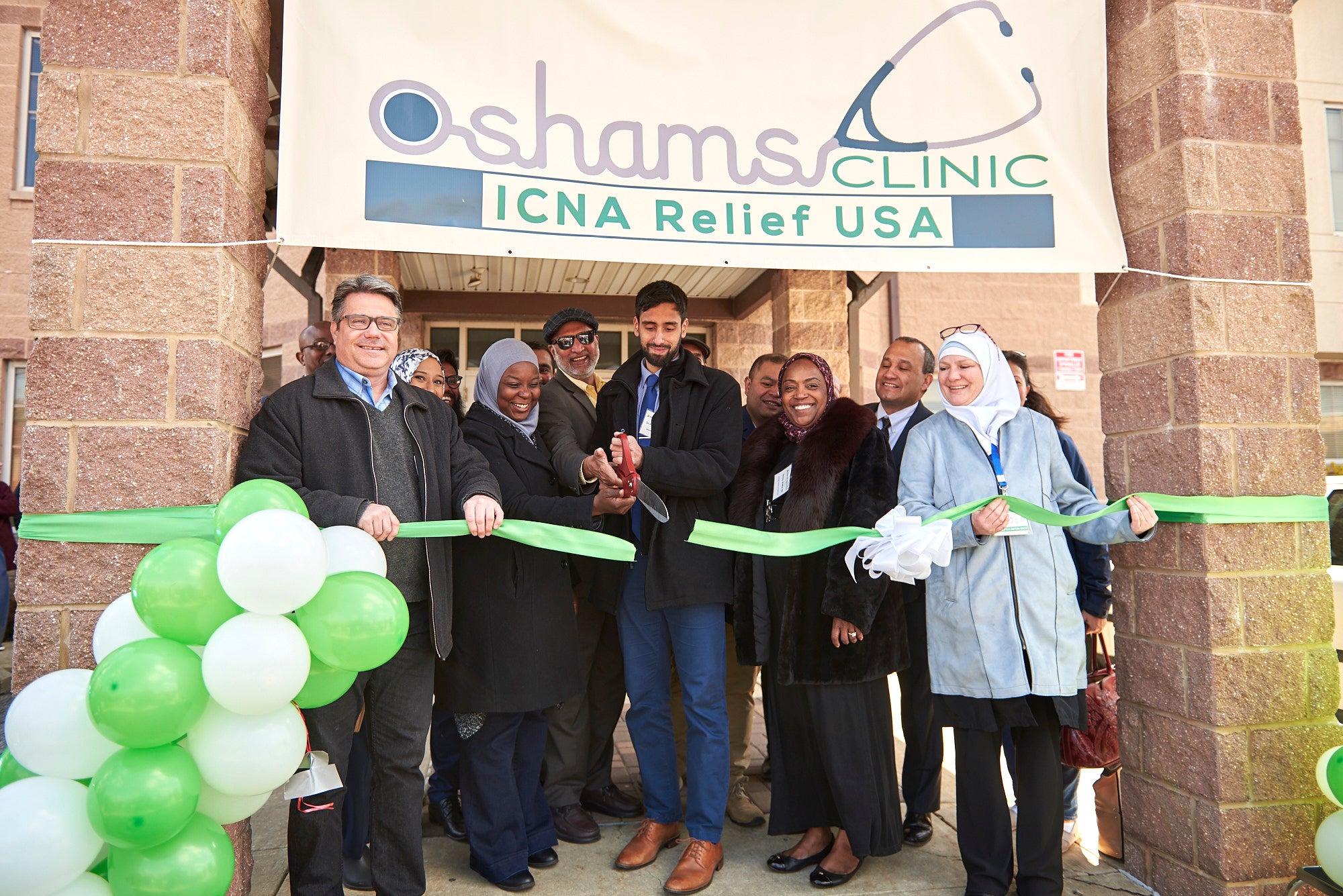
The word “SHAMS” has a double meaning. It’s an acronym that stands for “Social Health and Medical Services,” but it’s also the Arabic word for “sun,” and staff say the idea of the clinic is to bring brightness to peoples’ lives. According to the clinic’s website, more than half of the city’s roughly 75,000 Muslim residents live in poverty, and one in four lack health insurance. Philadelphia is also the poorest big city in America, with about 400,000 people living below the poverty line.
When the plans were first unveiled, some neighborhood residents were wary of the clinic, which is part of the national organization, Islamic Circle of North America or ICNA. A few made themselves known to City Councilman Bobby Henon, whose Northeast Philadelphia district includes the Holmesburg neighborhood where SHAMS is located. They made Facebook posts and angry phone calls expressing concern over what exactly would be happening at the clinic. Some were outright bigoted, he said.
“It doesn’t reflect the rest of the neighborhood,” Henon said. “It doesn’t reflect the community. I mean, there are many, many social service organizations from Catholic, Protestant, Episcopal, to Muslim communities all across the city of Philadelphia. So to me, there’s no difference.”
Census data show the largely white neighborhood has become more diverse over the years, with growing black and Hispanic populations, and an increasing immigrant community.
“You can see Northeast Philadelphia changing in its diversity,” Henon said. “So there is a need for the underserved in certain diverse cultures and rich communities, which I think this clinic provides in Northeast Philadelphia.”
“I think initially it was just lack of awareness and miscommunication and misunderstandings between the communities,” said the clinic’s outreach coordinator, Maaz Baqai. “We didn’t really do a good job of introducing ourselves, so it might have felt like we were just outsiders coming in.
“But I think over time we’ve been able to communicate better and you know we’re just trying to provide a good service and they know there’s a need for this in this community, as well.”
The clinic operates with about 10 volunteer doctors, and serves anyone who doesn’t have health insurance or can’t afford co-pays. It offers free primary care, mental health services, and connections to social services, such as food pantries, government benefits programs, shelters, and help signing up for insurance.
ICNA funds the clinic, along with support from mosques and individual donors.
Initially, the clinic will operate with limited hours. It will be open from 11 a.m. to 2 p.m. on Saturdays. Doctors hope to expand those hours and the services provided in the coming months.
“After this, we probably would like to have some specialists involved in this and get them on board,” said Mahmoud Siddique, an anesthesiologist at nearby Jeanes Hospital who sits on the board of SHAMS Clinic. “Some of the volunteers have already shown some interest in that. And once that happens, we can build on that and provide as many services as possible.”
WHYY is your source for fact-based, in-depth journalism and information. As a nonprofit organization, we rely on financial support from readers like you. Please give today.


